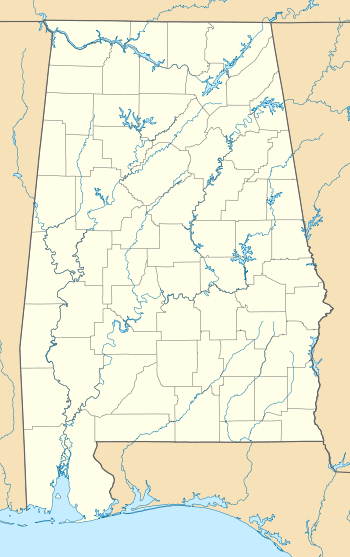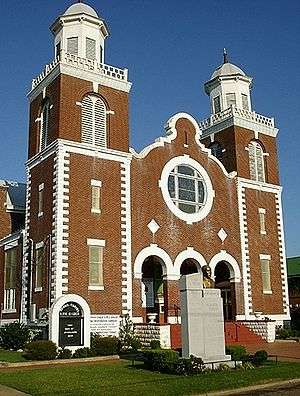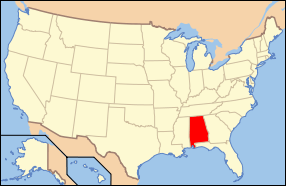Brown Chapel A.M.E. Church (Selma, Alabama)
|
Brown Chapel African Methodist Episcopal Church | |
|
Brown Chapel African Methodist Episcopal Church, taken in 2000. | |
  | |
| Location | 410 Martin Luther King, Jr., Street, Selma, Alabama |
|---|---|
| Coordinates | 32°24′44.65″N 87°0′58.19″W / 32.4124028°N 87.0161639°WCoordinates: 32°24′44.65″N 87°0′58.19″W / 32.4124028°N 87.0161639°W |
| Built | 1908 |
| Architect | A. J. Farley |
| NRHP Reference # | 82002009 |
| Significant dates | |
| Added to NRHP | February 4, 1982[1] |
| Designated NHL | December 12, 1997[2] |
| Designated ARLH | June 16, 1976[3] |
Brown Chapel A.M.E. Church is a church in Selma, Alabama, United States. This church was a starting point for the Selma to Montgomery marches in 1965 and, as the meeting place and offices of the Southern Christian Leadership Conference (SCLC) during the Selma Movement, played a major role in the events that led to the adoption of the Voting Rights Act of 1965. The nation's reaction to Selma's "Bloody Sunday" march is widely credited with making the passage of the Voting Rights Act politically viable in the United States Congress.[2][4]
It was added to the Alabama Register of Landmarks and Heritage on June 16, 1976 and later declared a National Historic Landmark on February 4, 1982.[1][3]
See also
References
- 1 2 National Park Service (July 9, 2010). "National Register Information System". National Register of Historic Places. National Park Service.
- 1 2 "Brown Chapel A.M.E. Church". National Historic Landmark summary listing. National Park Service. Archived from the original on January 11, 2008. Retrieved October 19, 2007.
- 1 2 "Properties on the Alabama Register of Landmarks & Heritage". Alabama Historical Commission. www.preserveala.org. Archived from the original on September 4, 2012. Retrieved October 25, 2012.
- ↑ Cecil N. McKithan (August 29, 1997). "Brown Chapel African Methodist Episcopal Church" (PDF). National Register of Historic Places. National Park Service.
This article is issued from Wikipedia - version of the 11/25/2016. The text is available under the Creative Commons Attribution/Share Alike but additional terms may apply for the media files.


